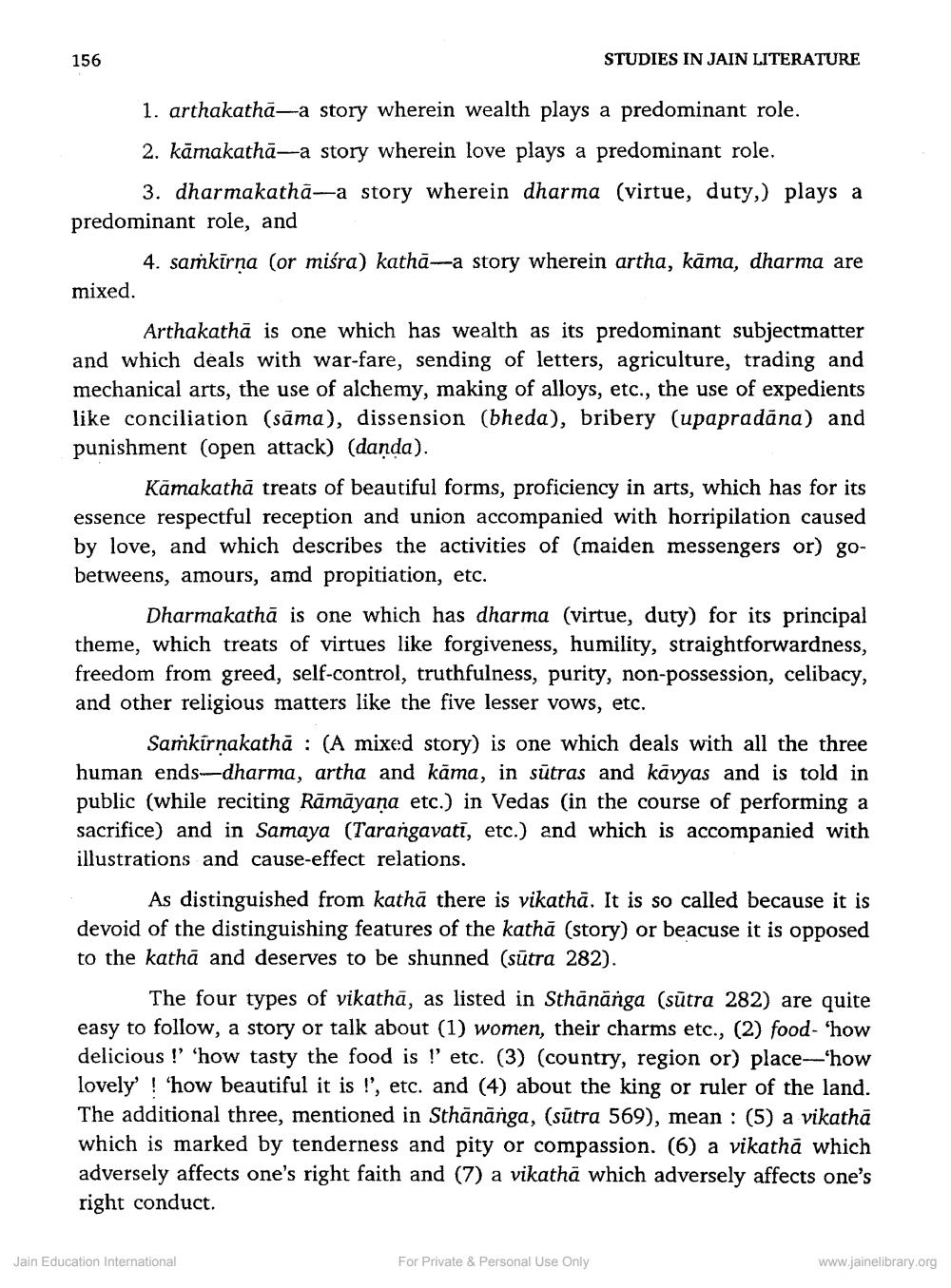________________ 156 STUDIES IN JAIN LITERATURE 1. arthakatha--a story wherein wealth plays a predominant role. 2. kamakatha--a story wherein love plays a predominant role. 3. dharmakatha-a story wherein dharma (virtue, duty,) plays a predominant role, and 4. samkirna (or misra) katha--a story wherein artha, kama, dharma are mixed. Arthakatha is one which has wealth as its predominant subjectmatter and which deals with war-fare, sending of letters, agriculture, trading and mechanical arts, the use of alchemy, making of alloys, etc., the use of expedients like conciliation (sama), dissension (bheda), bribery (upapradana) and punishment (open attack) (danda). Kamakatha treats of beautiful forms, proficiency in arts, which has for its essence respectful reception and union accompanied with horripilation caused by love, and which describes the activities of (maiden messengers or) gobetweens, amours, amd propitiation, etc. Dharmakatha is one which has dharma (virtue, duty) for its principal theme, which treats of virtues like forgiveness, humility, straightforwardness, freedom from greed, self-control, truthfulness, purity, non-possession, celibacy, and other religious matters like the five lesser vows, etc. Samkirnakatha : (A mixed story) is one which deals with all the three human endsdharma, artha and kama, in sutras and kavyas and is told in public (while reciting Ramayana etc.) in Vedas (in the course of performing a sacrifice) and in Samaya (Tarangavati, etc.) and which is accompanied with illustrations and cause-effect relations. As distinguished from katha there is vikatha. It is so called because it is devoid of the distinguishing features of the katha (story) or beacuse it is opposed to the katha and deserves to be shunned (sutra 282). The four types of vikatha, as listed in Sthananga (sutra 282) are quite easy to follow, a story or talk about (1) women, their charms etc., (2) food- 'how delicious !' 'how tasty the food is l' etc. (3) (country, region or) place-how lovely' ! 'how beautiful it is !', etc. and (4) about the king or ruler of the land. The additional three, mentioned in Sthanarga, (sutra 569), mean : (5) a vikatha which is marked by tenderness and pity or compassion. (6) a vikatha which adversely affects one's right faith and (7) a vikatha which adversely affects one's right conduct. Jain Education International For Private & Personal Use Only www.jainelibrary.org




